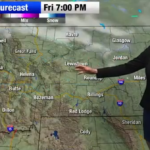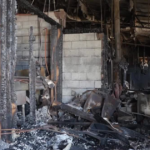Iceland is gearing up for a presidential election on Saturday, with three women, including former prime minister Katrin Jakobsdottir, in a close race for the position. The president of Iceland holds a ceremonial role in the parliamentary republic, acting as a protector of the constitution and national unity. While mostly ceremonial, the president has the authority to veto legislation or send it to a referendum.
The current president, Gudni Johannesson, who has been in office since 2016 and was re-elected in 2020 with 92% of the vote, announced earlier this year that he would not seek re-election.
No single key issue has dominated the election campaign, with candidates traditionally running as independents without party ties. Alongside the former prime minister, other notable candidates among the field of 13 include a political science professor, a comedian, a businesswoman, and an Arctic and energy scholar.
In a country with a population of 380,000, any citizen who can gather 1,500 signatures is eligible to run for office.
Jakobsdottir, who led a left-right coalition government from 2017 until April before stepping down to run for president, has faced criticism for being too political for the role. However, she defended her political background during a televised debate, stating that knowing the political landscape does not make her less capable of handling the role of president.
The debate among the candidates covered a range of topics, including the country’s NATO membership, providing weapons to Ukraine, potentially selling Iceland’s national power company, and the use of presidential veto powers.
– Women in the lead –
Jakobsdottir and two other women, Halla Tomasdottir and Halla Hrund Logadottir, have been leading in opinion polls. Tomasdottir is a businesswoman who came in second in the 2016 presidential election, while Logadottir is an environmental, Arctic, and energy expert.
In a poll published recently, Jakobsdottir was in the lead with 26%, followed closely by Tomasdottir with 24% and Logadottir with 19%.
Jakobsdottir, who has been praised for her handling of recent volcanic eruptions in the Reykjanes peninsula, faces challenges due to her background as prime minister. The election results are anticipated to be announced early Sunday, with the possibility of Iceland electing another female president after Vigdis Finnbogadottir became the world’s first democratically elected female head of state in 1980.
po/ach/lb





